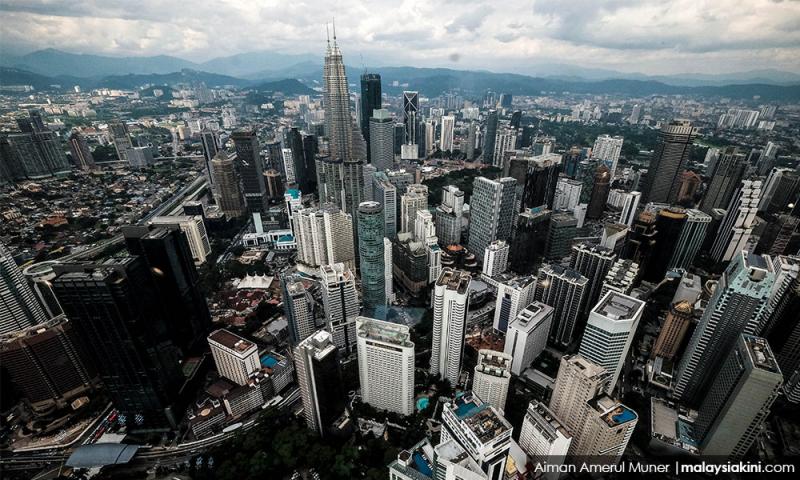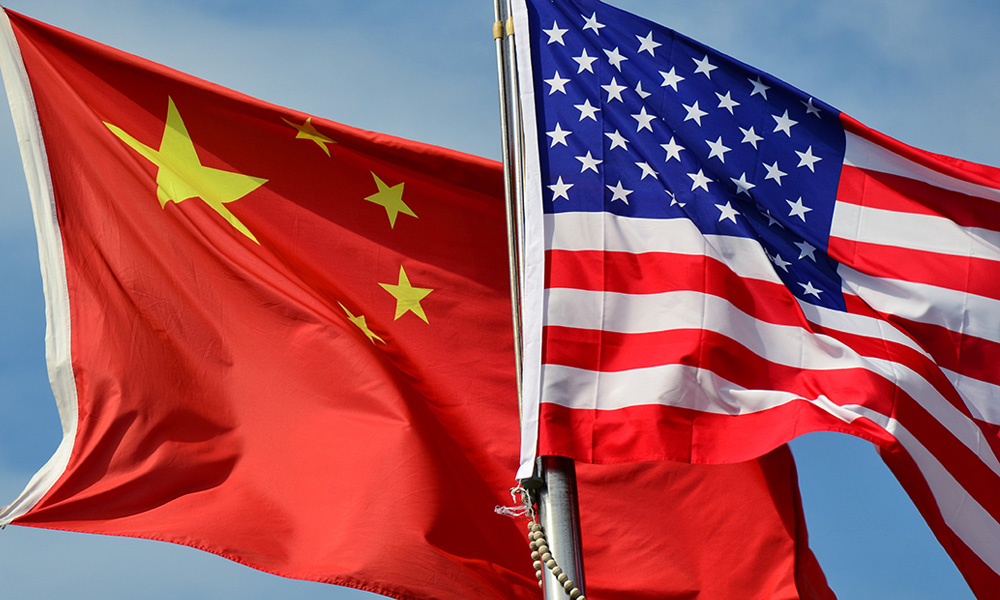Malaysia is not ready for a recession
COMMENT | When one sweeps away all the issues surrounding the inadequacies of Pakatan Harapan – mainly exaggerated by extant BN cyber troopers – what remains of Malaysia is a federation of states that is only as good as the sum of its parts.
If any of these states, especially in East Malaysia, begins to reject the idea of Malaysia as a federation, the country as we know it will be weakened; not unlike how the United Kingdom is weakened by Brexit.
Thus, any form of divisive politics can tear Malaysia apart – if not territorially, then psychologically in terms of mutual suspicion, exacerbated by racial or religious extremism.
But there is a third 'R' which can split Malaysia too: recession.
A recession is defined by the contraction of two economic quarters. The last time Malaysia was in a near fatal position was the Asian financial crisis in 1997, and before that the meltdown in the prices of rubber and tin in 1986.
Regardless of how Malaysia has been able to dodge the proverbial bullet, including the global financial crisis of 2007-2008, there is no telling if another global recession may trigger the economic problems besetting Malaysia right now.
As things are, the Sino-US trade war is part of the matrix of a larger war between the US and China.
Tom Wright of the Brookings Institution describes the conflict between US and China – indeed US and Russia – as part of the larger subset of cybersecurity and geopolitical conflicts.
Caught in a 'Thucydides Trap,' both countries are entwined in a conflict which neither country can pull itself out of.
The latter is due largely to the growing economic power of both juggernauts. It is also happening at a time when Asia's combined GDP has far exceeded that of the West for the first time in 400 years.
Having dominated the world for such a long period of time, the West, led by the US, is not about to roll over and play dead. Consequently, it has chosen to defend its turfs by locking China in an escalating tariff war.
Malaysia, as a trade-dependent country – with 30 percent of its GDP exposed to international trade – cannot avoid the economic forces of such trade war.
Indeed, just next door is Singapore. The country's GDP is ten times more reliant on international trade, and 300 percent more vulnerable to its perturbations.
If the Sino-US conflict worsens ever further, Singapore would be hit, and Malaysia too. This is especially true in Johor, the state closest to Singapore, where tens of thousands of workers make a beeline to the city-state each morning.
Although the trade war has had only a 0.4 percent impact on the GDP of China and 0.2 percent on that of the US, the impact will begin to show by 2020 when President Donald Trump is up for re-election.
Polls amplified in the news cycle already show that more than 30 percent of US voters do believe that Trump can be reelected.
This is a telltale sign that Trump would be emboldened by these numbers to ratchet up the trade war against China.
China, meanwhile, cannot buckle precisely because President Xi Jinping is not the type of leader to blink first.
How Trump and Xi assert their countries' respective economic strength and political will is bound to cause the Malaysian economy to be hit hard in the short and medium term.
If Pakatan Harapan wants to go beyond one term, it has to focus on enhancing its economic performance both within the region and without.
This includes counselling US and China to exercise self-restraint, a message which Prime Minister Dr Mahathir Mohamad can deliver both at the Asean Leaders Summit in Bangkok in late June and also once again in November 2019.
RAIS HUSSIN is a supreme council member of Bersatu. He also heads its policy and strategy bureau.
The views expressed here are those of the author/contributor and do not necessarily represent the views of Malaysiakini.
RM12.50 / month
- Unlimited access to award-winning journalism
- Comment and share your opinions on all our articles
- Gift interesting stories to your friends
- Tax deductable

 Rais Hussin
Rais Hussin
